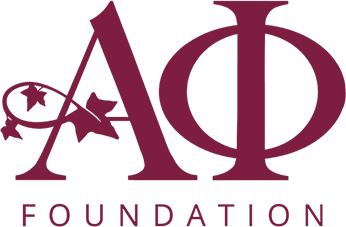#DIGIN to Preventing Heart Disease
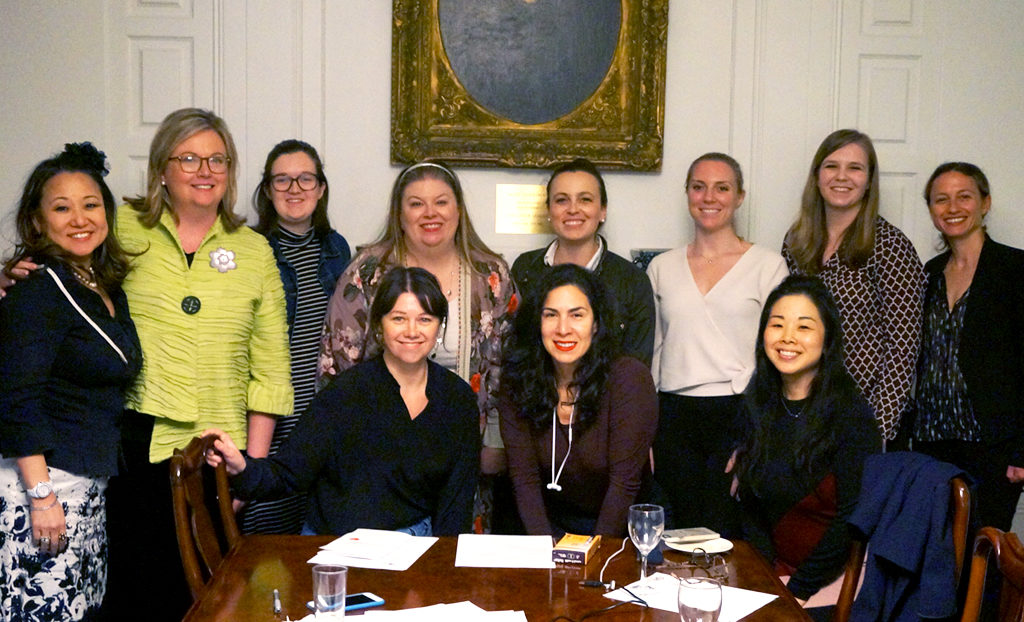
Reflecting on the Impact of the 2018 Heart to Heart Grant
Each year, Alpha Phi Foundation awards the Heart to Heart Grant to support women’s cardiovascular research and education. In 2018, cardiologists from the Yale School of Medicine in partnership with The Patient Revolution were awarded the Heart to Heart Grant to fund the #DIGIN Project. The project is modeled on the idea of Tupperware parties to allow women to come together to discuss their personal risk factors for heart attack and stroke.
Creating space to talk about heart health
Dr. Erica Spatz, one of the lead cardiologists from Yale School of Medicine, shared that “the #DIGIN project has allowed me to take an everyday challenge I have in my job—talking to women about preventing heart disease—and develop the science and tools to support how best to have these conversations.”
This project uses a human-centered design to engage diverse groups of women in community events, creating space for both the researchers and the women who attend to discuss their cardiovascular health. “Managing your heart health—and all health—is about decisions and trade-offs in context. What has been so great about the #DIGIN work is that it has given us space to really explore how to best support women in that activity,” says Maggie Breslin, #DIGIN’s facilitator from The Patient Revolution.
-
- If you’re interested in tools to assess your risk of heart attack or how to talk to your physician about your risk, view The Patient Revolution’s guide and resources here.
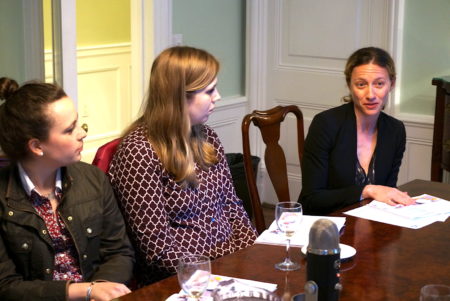
Dr. Spatz explains, “Our goal in cardiovascular disease prevention is to use evidence-based medicine to inform individualized choices about whether to modify lifestyle behaviors or take a statin (cholesterol-lowering medication), but these discussions can feel complicated. ‘Right-sizing prevention’ involves matching a woman’s risk for heart disease with her preferences, values and goals. It takes time. The #DIGIN platform gives women the time and space to work through the data and the trade-offs involved in making decisions about prevention.”
…It takes time. The #DIGIN platform gives women the time and space to work through the data and the trade-offs involved in making decisions about prevention. — Dr. Erica Spatz, Yale School of Medicine
Spatz continues, “Women can ask questions and hear about other women’s journeys and challenges. #DIGIN sessions are designed to empower women with the information and skills needed to have these discussions with their doctor so they can make decisions that are right for them. Additionally, many of the women attending our sessions are leaders—in their workplace, families and social networks—and they can now be ambassadors of this kind of “dig in” approach to preventing heart disease in women.”
Evolving research to support women and their needs
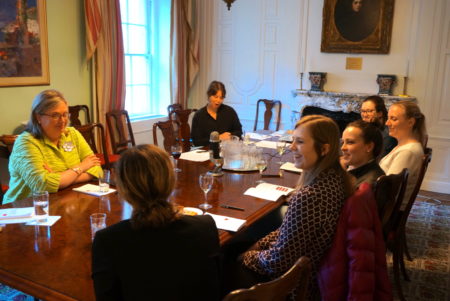
It’s been a year since the #DIGIN project was awarded the Heart to Heart Grant. Since then the program has continued to evolve. “[The events] focus less on simply imparting information and more on discussions and processing of what that information will mean for you,” Breslin reflected.
Dr. Spatz agreed, noting, “With each session, we learn more about what works and what doesn’t, which informs our next prototype. By the end of the project, we aim to have a toolbox that the health community, and women themselves, can tap into to support them and their communities in decisions about cardiovascular disease prevention.”
With the feedback received from participants, the #DIGIN team has incorporated role-playing scenes of doctors and patients in conversation about common heart health issues in real-life contexts, like stress, reproductive issues, financial challenges. This exercise provides experiential learning of shared decision-making regarding prevention for heart disease in women.
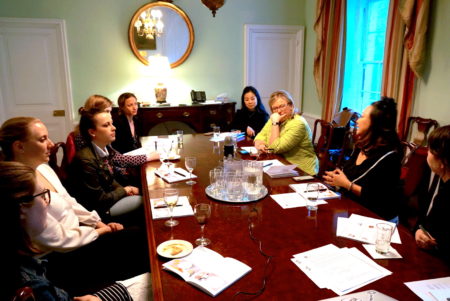
The value and importance of this work
By funding research that helps women better engage in the conversations that drive informed health decisions, Alpha Phi Foundation leaves its mark on the world.
Breslin adds, “It’s worth noting that with research like this, Alpha Phi Foundation has donated not just the money to pursue this work, but also their time and energy. We’ve run multiple events recruiting from the Alpha Phi network and have plans to do more. This helps us understand not only how to create a meaningful activity, but how do we convince women to attend.”
In May, Alpha Phi hosted a #DIGIN event with a group of alumnae in New York City. The community event brought a group of Alpha Phis the opportunity to talk about what risk factors for cardiovascular health look like and to see first-hand the impact of the Heart to Heart Grant.
“This is an exciting research space—how to support decision-making in context and richer conversations between clinicians and patients—but also an emerging one. It means a lot that Alpha Phi Foundation has seen the value and importance of this work,” says Breslin.
